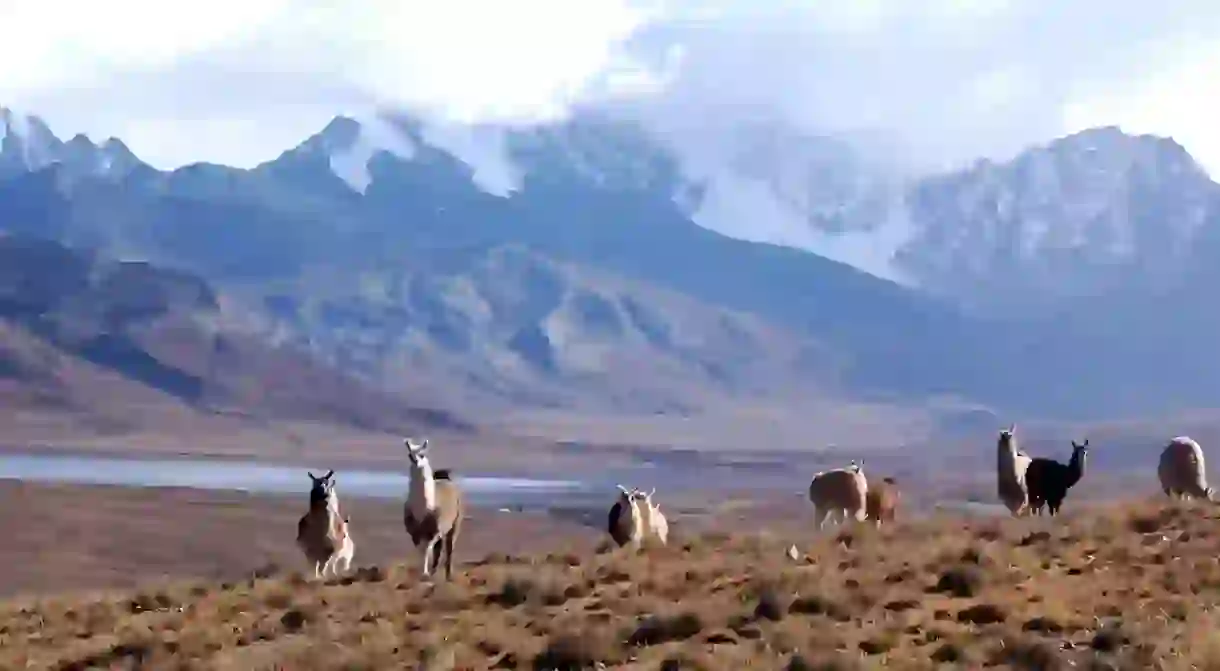8 Bolivian Films You Need to Add to Your Watch List

For a small, developing country with a modest artist scene, Bolivia has produced a surprising number of interesting films over the years. National cinema is uniquely Bolivian and provides a captivating insight into the culture, people, history and struggles of this complex Andean nation. Read on to discover 8 films that will educate while simultaneously narrating some fascinating story lines.
1. Cuestión de fe (A Matter of Faith)
This lighthearted 1995 classic follows the story of a sculptor named Domingo, played by local favorite Jorge Ortiz. Domingo is contracted by some gangsters to carve a life size model of the Virgin Mary and transport it to a faraway religious festival. Upon finishing the statue, Domingo enlists the help of a truck-stealing friend and they set off on a journey to deliver the effigy, facing many obstacles along the way. Equal parts funny and cathartic, the film examines themes of friendship, betrayal and religion.
2. Zona Sur (Southern District)
A film about the end of Bolivia’s discrimination era, Zona Sur follows the life of an upper-class family who live in the wealthy Southern District of La Paz. Featuring a self-entitled divorced mother who is frivolous with her savings, and her spoiled, hedonistic children along with their indigenous servants who struggle with identity issues; tensions in the house rise until boiling point. From the country’s most accomplished director, Juan Carlos Valdivia, Zona Sur’s excellent acting, cinematography and powerful social message make it a must-see piece of Bolivian cinema.
3. Visa American (American Visa)
An earlier film from the renowned Juan Carlos Valdivia, American Visa covers a topic that has crossed the minds of many Bolivians – migrating to the U.S.A to live the American dream. A retired English teacher travels to La Paz from the countryside to acquire a U.S. visa so he can live out the rest of his days with his son. That is until the visa turns out to be more expensive than predicted. He comes up with a crazy plan to raise money, despite starting a new romantic relationship with a stripper who pleads with him to stay. Thanks to Valdivia’s top-notch storytelling and production values, American Visa is highly regarded as a classic in Bolivian cinema.
4. Los Andes no Creen en Dios (The Andes don’t Believe in God)
A period film set in 1920s Uyuni, the story follows a young and well-educated writer who arrives from Europe with dreams of making a fortune in the mining industry. When he falls in love with a woman of mixed race but is forced to end the relationship due to racist attitudes of the time, this creates a complex love story with many twists are turns. The film is known for its high production values, largely thanks to its massive $500,000 budget (by Bolivian standards).
5. ¿Quién mató a la Llamita Blanca? (Who Killed the White Llama?)
This is a fast-paced and funny film telling the story of two married criminals who attempt to smuggle a huge load of cocaine to the Brazilian border. The movie pokes fun at Bolivian customs and nuances, both rural and urban, while dealing with the very serious themes of poverty and economic equality. Disguised as campesinos (country folk), the two outlaws must evade anti-narco police as they travel through Bolivia’s stunning and diverse topography. It’s an easily accessible film, and a hell of a lot of fun! Perhaps this explains why it broke all the local box office records after its release.
6. Cocalero
Brazilian-born filmmaker Alejandro Landes traveled to Bolivia in 2006 to record the rise of the country’s first indigenous President, Evo Morales. The film was shot as a vérité-style documentary, meaning it used staged scenes and raw footage to narrate how Morales went from being a coca farmer to the country’s most powerful man. It’s an important film for anyone interested in national politics, whether they support the President or not.
7. El Minero del Diablo (The Devil’s Miner)
An essential watch for anyone wanting to visit Potosi, The Devil’s Miner exposes the reality of two young teenage brothers who spend much of their lives working underground, in one of Potosi’s notoriously harsh silver mines. Made by a foreign duo of independent filmmakers, this documentary provides a somber insight into some extremely difficult conditions that the children face. It also portrays traditional practice of offering cigarettes, coca and alcohol to the devil in return for protection and good fortune. The film won many awards and has been praised for bringing attention to the issue of child labor.
8. El Cementerio de los Elefantes (The Elephant Cemetery)
A terribly depressing yet important Bolivian film, The Elephant Cemetery is a fictional story based on a very real phenomena. This poignant film follows the final days of a 33-year-old alcoholic who has been drinking since he was just 14. He books into a special kind of hotel known as an elephant cemetery, which provides him with enough pure alcohol to drink himself to death. Although illegal, it’s certain that such places do exist in the poorer suburbs of La Paz. This low budget movie was filmed in just a few months for $21,000, but its captivating and melancholic storytelling won several international awards.













